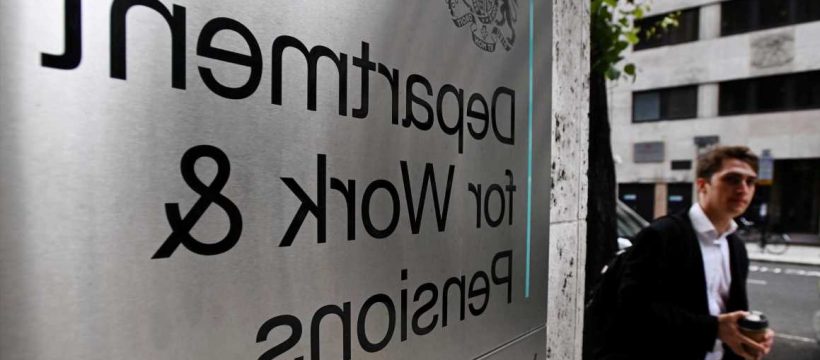THERE are just two weeks left until Universal Credit payments are slashed for millions of families across the country.
On October 6, weekly payments will be cut by £20.
Payments were increased by £80 a month – or £1,040 a year – at the start of the Covid pandemic to help struggling families.
Now the Government has warned the temporary uplift will come to an end.
But campaign groups have warned that going ahead with the cut could be “catastrophic”.
Save the Children has warned that four in five households receiving Universal Credit will find it harder to buy food if the cut goes ahead.
The charity has branded the combination of furlough ending, bills rising, National Insurance increasing and Universal Credit being cut as a “perfect storm”.
Dan Paskins, director of UK impact at Save the Children, said: “For families already under pressure, the cut will be catastrophic.
"This time of year is already challenging, with parents having to pay more for heating, school uniforms and winter clothes, as well as preparing for Christmas.”
Here’s what you need to know about the Universal Credit cut – including how much money you could stand to lose out on.
Why is Universal Credit being cut?
The Government introduced the Universal Credit uplift in April 2020 to support those on low incomes through the Covid pandemic.
It was extended in March 2021 but will end on October 6, and the Government has ruled out further support.
The cut applies to the standard allowance. That means you may still be eligible for additional elements if, for example, you care for a child or if you have an illness or disability.
The additional amount will not change. This includes the child element, carer element, and housing cost element among others.
How much will I lose out on?
Since the start of the pandemic, a single claimant aged 25 or over could get £411.51 a month through Universal Credit. That will fall to just £324.84 after the cut.
Joint claimants, where one of you is 25 or older, currently get up to £596.58 a month. But this will fall to £509.91 after the cut.
But the situation for many families is even more dire. The taper rate means your payments reduce as you earn more.
That means claimants working more to make up the difference stand to lose 63p of Universal Credit for every extra pound they earn.
Analysis for the Debt Camel blog found that someone on Universal Credit would actually need to earn at least £54.05 a week extra to make up for the £20 loss.
The Sun has been calling for a reduction in the taper rate and an increase in the work allowance as part of our Make Universal credit Work campaign.
When will the cut take place?
Officially the uplift ends on October 6. That means you could receive your first reduced payment as early as October 6 or as late as November 5, depending on when your monthly assessment is made.
MPs are scheduled to vote in an Opposition debate on the cut today. But the Government has ruled out any chance of extending the uplift or making it permanent.
That’s despite pressure building from public figures such as footballer Marcus Rashford, who last week launched a new campaign to tackle child poverty.
How do I find out about my allowance?
The Department for Work and Pensions (DWP) will update claimants’ statements and online journals.
It sends a text or email alert when this happens, which will depend on when you usually receive your payment.
These should detail how much extra you have been receiving and when you final boosted payment will be made.
To check your statement you just need to log on to your online account.
Who will be affected by the cut?
Lower income families across the country are set to feel the impact of the cut. Latest figures from the DWP show there were 5.9 million people and 5 million households receiving Universal Credit as of 8 July 2021.
Single mum Gemma told Save the Children that the £20 represents “the difference between having money left to buy my child’s packed lunches or food, or paying a bill that comes unexpectedly”.
Another single mum, Vikki, said she will have to buy lower-quality food and sanitary products as a result of the cut.
Paskins added: “Parents tell us that if the cut goes ahead they’ll have to turn to food banks to feed their families and that just paying for the basics will force them into a spiral of debt.”
What can I do if I’m worried about my income?
If you are concerned about the effect of the Universal Credit cut, there is support available.
Citizens Advice suggests getting a benefits check to make sure you’re getting all the support you’re entitled to. You may also be eligible for free school meals and food bank vouchers.
Organisations such as Citizens Advice and StepChange can also help if you are worried about debt.
Who can get Universal Credit?
Universal Credit is available to those living in the UK who are on a low income or out of work and are aged 18 or over.
To be eligible, you (and your partner, if you have one) must have less than £16,000 in savings between you.
The number of children you have doesn’t affect your eligibility but it can affect how much you get.
You may also be eligible if you are over 18 and in training or studying full-time, or if you are aged 16 or 17 in certain circumstances.
We pay for your stories!
Do you have a story for The Sun Online Money team?
Email us at [email protected]
Source: Read Full Article

